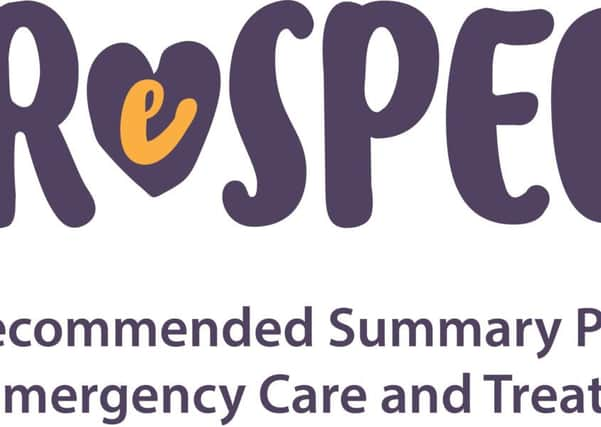New process to give patients more say on emergency care


Filling in the ReSPECT form will encourage healthcare staff and patients to have difficult conversations about emergency treatment earlier when it is introduced on February 4.
ReSPECT – which stands for Recommended Summary Plan for Emergency Care and Treatment – consists of a form which is filled in following conversations between patients and their healthcare staff to determine a personalised plan for potential future emergency care and treatment.
Advertisement
Hide AdAdvertisement
Hide AdIt is designed to allow patients greater influence on what happens to them in their own individual situation and that their wishes are carried out appropriately.
The nationally recognised process will be adopted by all Lincolnshire health and care organisations.
Adam Brown, Consultant in Palliative Medicine at St Barnabas and United Lincolnshire Hospitals NHS Trust, said: “In a crisis, healthcare staff may have to make rapid decisions about care and treatment when a patient may not be well enough to participate in making choices themselves.
“The ReSPECT process empowers patients to guide healthcare staff on what treatments they would or would not want to be considered for.
Advertisement
Hide AdAdvertisement
Hide Ad“It can also record the things that are most important to the patient and that should be prioritised, as well as treatments that would not work for them.
“Many life-sustaining treatments involve risks of causing harm, discomfort and loss of dignity, or the risk of dying in hospital when a patient may have wanted to be at home.”
Rebecca Taylor, Lead Nurse for Quality at Lincolnshire West Clinical Commissioning Group said: “This new initiative will provide more clear guidance from patients than the previous Do Not Attempt CPR orders.
“We want these conversations to be had between families, patients and healthcare professionals.”